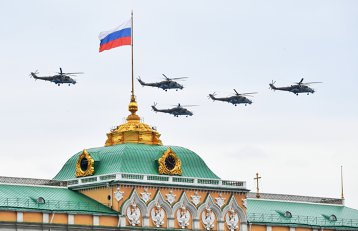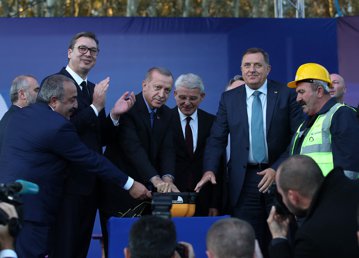
Nord Stream 2- Political compromises and economic interests

The controversial Nord Stream 2 project was subjected to EU’s Council vote, which is now under Romania’s rotating leadership, in regard of the legislation proposal the European Commission has petitioned to find solutions to avoid Europe’s dependency on the Russian gas and, hereof, the immediate political consequences. Although France was initially for the project, ulterior it has negotiated with Germany a compromise solution according to which the constructions and exploitation of Nord Stream 2 to follow the European legislation, but with Germany’s careful monitoring, in behalf of the EU.
Nord Stream 2 project refers to the construction of a second submarine gas pipeline, 1225 km length, worth of 8,9 billion Euro, to connect Viborg (Russia) to Greiswald (Germany), in order to double the quantity of gas delivered to Europe. The necessary gases for the entire Europe would be delivered by Russia through the current pipelines, but the supplier wants, for political reasons, to give up using the pipelines which passes through Ukraine.
Germany initially saw this project as an economic Russian-German business. However, in time, through its effects, it was internationalized. Both states interests are economic, but political too.
Russia’s interests are:
- Ensure Germany and other European states’ dependency on Russian gases. In 2013, Russia delivered Europe 39% of the necessary gases. This quantity has been increased in time and through the current project it could be doubled.
- Using this dependency for political reasons, ensuring these states’ support in decisions regarding Russia;
- Giving up gases delivery through pipelines which are passing through Ukraine, depriving this country of the amounts it could have received from the transit taxes. This could be seen as Russia being at a hybrid war with Ukraine.
Germany’s interests are:
- Ensuring the necessary of gases for Germany, given that it is giving up the nuclear energy and the one hydrocarbon-based.
- Transforming Germany in a natural gases’ supplier to Western Europe’s states and also ensuring the dependency of these states to gases coming through the new German energetic hub.
For this project to be left out of the Russian-German business perspective, pipeline’s construction was Europeanized with the participation of a consortium of companies conducted by Gazprom, with a majoritarian capital, Uniper with Wintershall from Germany, the British-Dutch company Shell, the Austrian one, OMV and the French, Engie. Administration’s council Chairman is no one but Gerhard Schroeder, Germany’s former chancellor, with a great experience in leading the Russian energy companies.
The East-European states are opposing the Nord Stream 2 as they see it as a brutal method to influence Europe’s decisional process in the relation with Russia. The unfortunate historical experience of these states in relation with Russia pushes them to be not only prudent, but also to oppose its projection in Europe.
US is openly opposing this project as, according to Donald Trump’s statement from July 2018, at the NATO Summit from Brussels, Washington does not want to pay, with Americans’ tax payers’ money, Germany’s security against the one it has businesses with and it is also energetically and politically dependent on. US Administration’s suspicions refer to Russia’s possibility to blackmail the European states because of their dependency on the Russian gas.
In these circumstances, on Friday 8th of February, EU’s Council has subjected to vote the European Commission’s proposal regarding the Gas Directive’s modifications, especially on the definition of “interconnector”, by including in the European legislation all the pipelines connecting EU member states and third countries outside the Union. This means that Nord Stream 2 also has to be subject of the European legislation. Without blocking the project, the implementation of this modification might worsen its completion and might increase also the construction costs. Furthermore, the constructor cannot be also the supplier. Hence, Gazprom cannot build the pipeline and be gases’ supplier as well.
Germany, together with Netherlands (which is part of this project and a beneficiary as well), Austria (participant), Belgium, Bulgaria are opposing the legitimization of these amendments. Bulgaria is opposing the modification as it intends to receive Russian gases through Turkish Stream, which is similar to Nord Stream. Hungary would want to receive Russian gases from Turkey through Bulgaria and Romania. Once applying the new form of the Gas Directive, the European legislation would be applied to all these projects.
In order to block the amendments, Germany would need, in EU’s Council, the support of 4 EU member states, which means at least 35% of Union’s population. However, the states supporting it have 137 million people, which is 27% of EU’s population.
Poland, Lithuania, Letonia and Estonia have political-based reasons to oppose the construction of the pipeline and this is why they are supporting the European legislation. Romania also supports the law modification.
It was surprising France’s position at that time which, although it was part of the consortium with Engie, it was supporting the modifications of Gaz Directive. Given that France has the second place in Europe regarding population’s number, its vote was decisive.
This is the moment Mrs. Angela Merkel started a complex diplomatic telephonic dialogue, which lasted two days, with many European capitals, aiming to block EU’s Council vote. It seems that her dialogue did not succeed, because the states supporting modification’s legislation were carefully following France’s position. It was speculated that there would be a French-German crisis happening, however, it was lately denied by Emmanuel Macron. DPA’s new agency spokesperson, mentioned: “we are concerned on the Russian gas dependency. This is why it is important to ensure the European control for this dependency to stop growing”.
On Friday, France changed its mind and came to terms with Germany, hence Nord Stream 2 will no be blocked by the European Commission, but it will be introduced a provision which ensures the European control of the project by the European states whose territorial waters the pipelines pass through, meaning Finland, Sweden, Denmark and Germany, the latter becoming the EU leader of the project. This monitorization involves the control over the way the European legislation is implemented by the ones taking part in this project.
Some western analysts state, that France’s final position could have been just a negotiation method with Germany over EU’s French reform project, currently disapproved by Germany.
However, the result pushed Mrs. Merkel state: “Regarding the gas directive, we have reached an agreement and this was possible because Germany and France worked closely together”, saving the appearances against the emerged disputes. She also mentioned once more that the “project is purely economic”.
This compromise was supported by all EU states, except for Bulgaria. The final approved version is not legitimate until the European Parliament will approve it. If the Gaz Directive will be accepted as it is, the Russian energy giant, Gazprom, will have to follow the European legislation in all pipelines’ projects it takes part in, whether as constructor or supplier.
Hence, Nord Stream 2 was not cancelled, but Europeans tried to ensure their control over its process, somehow refusing Russia’s tasks and maneuver space.
The proposal made by the European Commission was presented to EU’s Council, it was voted and in the following weeks it will be subjected to vote in the European Parliament.
Given US’s firm opposed position against the Nord Stream 2, showed by the president, but also by Congress’s resolutions, Trump´s administration may impose economic sanctions to companies participating at this project.


